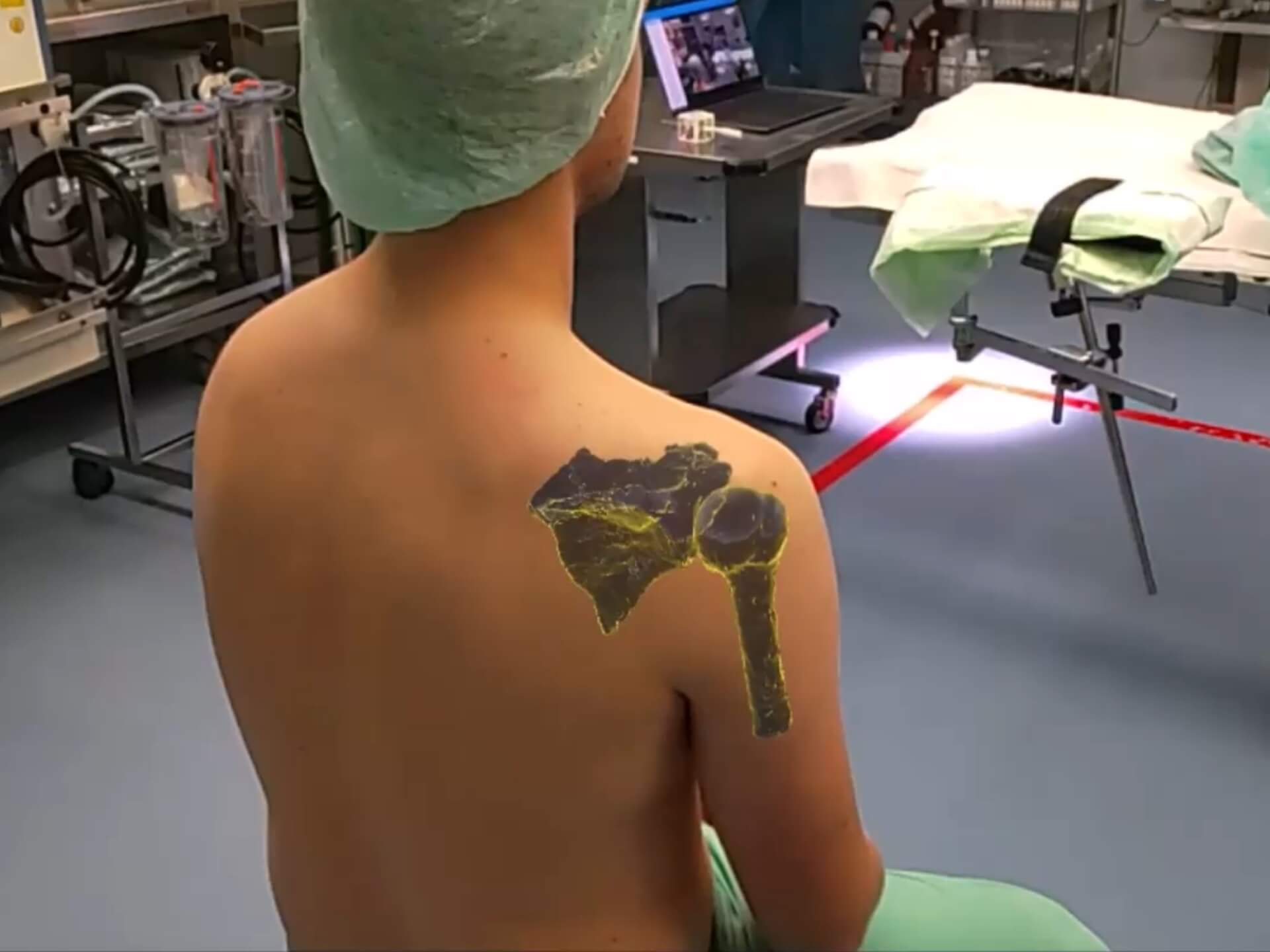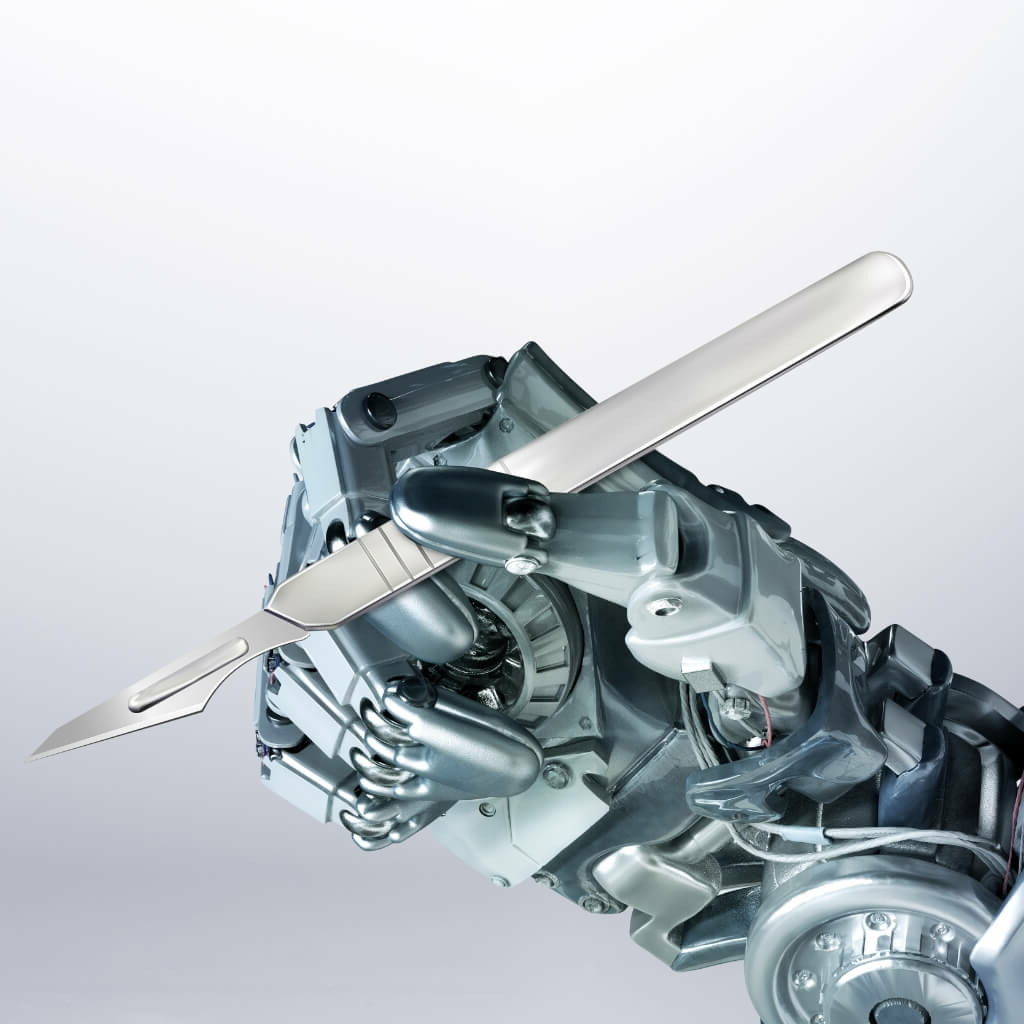says company founder Dr. Ronny Grunert. „It allows us to innovate extremely quickly – from identifying a clinical problem, to finding a technological solution and creating a viable product.“
Medical 3D print
Medical 3D print
Every human body is different, which means there is no such thing as a ‘standard’ procedure during an operation. Next3D GmbH is advancing the field of individualized surgery through augmented reality (AR) and patient-specific 3D-printed implants and instruments.
Launched as a spin-off of University Hospital Leipzig, this young company has ambitious goals: It aims to make state-of-the-art AR navigation available to a broad range of surgical disciplines and to use 3D printing to meet the individual needs of patients who are undergoing high-precision surgery.

Next3D: Augmented Reality Navigation in OR
Next3D: Augmented Reality Navigation in OR

Next3D: Augmented Reality Navigation Scapula
Next3D: Augmented Reality Navigation Scapula

Next3D: Augmented Reality Navigation Teaching
Next3D: Augmented Reality Navigation Teaching

Next3D: Augmented Reality Navigation
Next3D: Augmented Reality Navigation
Leipzig’s unique medical and technological environment offered the perfect framework for Next3D’s founding – but other factors proved just as vital. The next-level support which the start-up was able to access was invaluable on its continued path to business maturity, e.g.
Leipzig’s excellent infrastructure, central location and municipal support further strengthened the company’s confidence in its choice for this vibrant city in the heart of Europe.

says company founder Dr. Ronny Grunert. „It allows us to innovate extremely quickly – from identifying a clinical problem, to finding a technological solution and creating a viable product.“
Next3D is revolutionizing high-precision surgery: Its AR navigation system nextLens gives multiple surgeons X-ray vision in real time, making operations safer and convalescence quicker – and its 3D-printed implants are tailored to the needs of each individual patient.
Next3D GmbH
Since its beginnings, Next3D has stood for creativity, flexibility and cooperation. As far back as 2015, the founders were working with surgical specialists at the University of Pittsburgh Medical Center on innovative ideas for new products. And during the first wave of the COVID-19 epidemic, the Next3D team collaboratively developed a 3D-printed ventilator for emergency triage use – in just one week. Find out more at


robotics
Robotic hand with various joints and cables which holds a scalpel

robotics
Robotic hand with various joints and cables which holds a scalpel
Autonomously driving minibusses, real-time transmission of ultrasound data from the ambulance…

robotics
Robotic hand with various joints and cables which holds a scalpel
With its locations in Dresden and Leipzig, the ScaDS.AI Dresden/Leipzig combines the excellent AI…

robotics
Robotic hand with various joints and cables which holds a scalpel
The great potential of artificial intelligence (AI) and machine learning for the life sciences…

robotics
Robotic hand with various joints and cables which holds a scalpel
During minimally invasive surgery, cutting-edge imaging technology can give physicians more and better visual information to base decisions on. Medical spectral imaging makes the invisible visible to surgeons – and can improve outcomes for patients.